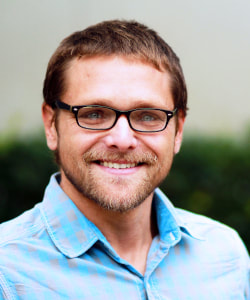Wegemer serves as a Community-Research Fellow with the Orange County Educational Advancement Network (OCEAN). His first-authored manuscripts have been published in leading journals, including Developmental Psychology and Frontiers in Psychology. He holds a B.S. in Applied Physics from Providence College, B.S. in Electrical Engineering from Columbia University, M.A. in Global and International Studies from UC Santa Barbara, and M.A. in Education from UC Irvine. For his doctoral work, he is specializing in Human Development in Context (HDiC). Distinguished Professor Jacquelynne Eccles serves as his advisor.
Renick's research interests include adolescents’ sense of school belonging, factors that impact positive school climate, and community-engaged research methods. She serves as a Community Research Fellow with the OCEAN project, where she has been working to develop a research-practice partnership with a local middle school and a college access nonprofit. In 2019 she received the Newkirk Fellowship in Community-Based Research to work with the Orange County Environmental Justice (OCEJ) organization and its People for Environmental Justice (PEJ) program. She is the recipient of a 2021 Public Impact Fellowship to facilitate a youth-participatory action research project in partnership with a local middle school. Renick is specializing in Human Development in Context. Professor Stephanie Reich serves as her advisor. Abstract Research-practice partnerships (RPPs) offer promising approaches to improve educational outcomes. Navigating boundaries between contexts is essential for RPP effectiveness, yet much work remains to establish a conceptual framework of boundary spanning in partnerships. Our longitudinal comparative case study draws from our experiences as graduate student boundary spanners in three long-term partnerships to examine boundary spanning roles in RPPs, with particular attention to the ways in which power permeates partnership work. Using qualitative, critically reflexive analysis of meeting artifacts and field notes, we found that our boundary spanning roles varied along five spectrums: institutional focus, task orientation, expertise, partnership disposition, and agency. Our roles were shaped by the organizational, cultural, relational, and historical features of the partnerships and contexts of interaction. We aim to promote the development of effective RPP strategies by leveraging the perspectives and positionality of graduate students in order to advance understanding of boundary spanning roles. Comments are closed.
|
Resources for:
|
|



